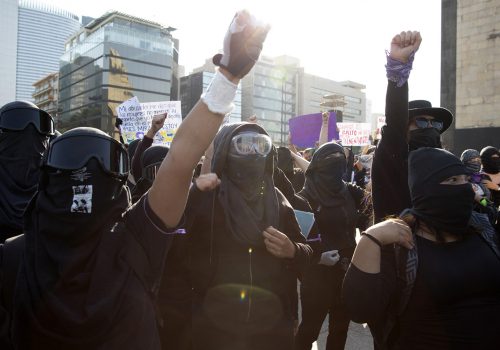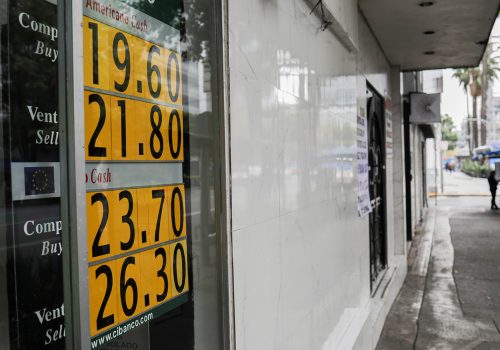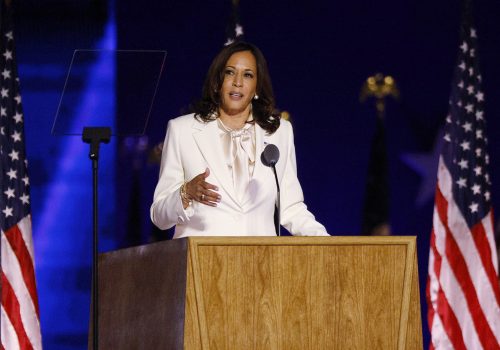The Northern Triangle: The world’s epicenter for gender-based violence

Gender-based violence, or GBV, is continuing to drive migrants out of the Northern Triangle of Central America. And the pandemic has only made the problem worse. Many consequences of the COVID-19 crisis—lockdowns, the global economic crisis, even increases in alcohol consumption—have exacerbated violence against women at the hands of their partners and family members. While a bill introduced in the US Congress calls upon the secretary of state to implement a new US Strategy for Engagement in Central America that prevents and responds to “endemic levels of sexual, gender-based, and domestic violence” in the region, solutions to gender-based violence must arrive faster than the US legislative process can help advance them.
GBV, as defined by the United Nations Population Fund, refers to an action “that results in, or is likely to result in, physical, sexual, or psychological harm or suffering to women… whether occurring in public or private life.” Data from the World Health Organization shows that one in every three women globally has been beaten, coerced into sex, or abused in some way.
At the regional level, and especially in El Salvador and Honduras, the data is more frightening. In El Salvador, one woman fell victim to femicide—a targeted murder of a woman based on her gender—every twenty-four hours on average in 2018. In Honduras, 6.2 out of 100,000 women were murdered as a result of femicide in 2019—the highest figure in Latin America and the Caribbean. Statistics so far in 2021 record a femicide in Honduras every thirty-six hours; at the beginning of February, four women were brutally killed there in a span of forty-eight hours.
If the perpetrators were likely to face justice for these murders, this kind of violence would occur less frequently. Instead, impunity for men is rampant across the Northern Triangle. This nearly guarantees that perpetrators of violence—often gang members or police officers—face no punishment for their crimes. The vicious cycle of violence and impunity puts victims of non-fatal gender-based violence in an impossible situation, without recourse to institutions or systems that can hold their abusers accountable. If escaping from gender-based violence isn’t harrowing enough, women also face heightened dangers of being trafficked when they embark on the journey to the US border.
US President Joe Biden’s recent executive order to address the root causes of migration contains important strategies for combating sexual- and gender-based violence with help from multisectoral and multinational partners. Coordinated action and focus on gender-based violence from civil-society leaders, private-sector actors, multilateral organizations, and the international community are necessary to support GBV victims in the Northern Triangle. In the absence of better policies to protect society’s most vulnerable, women will have fewer reasons to stay in their home countries—a reality that holds not just in Central America but around the world.
Maria Fernanda Bozmoski is deputy director, programs, at the Adrienne Arsht Latin America Center.
Further reading
Image: Women light up candles during a protest to mark the International Day for the Elimination of Violence against Women, in San Salvador, El Salvador November 25, 2020. REUTERS/Jessica Orellana


